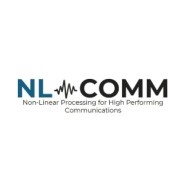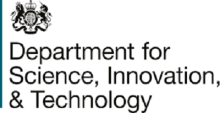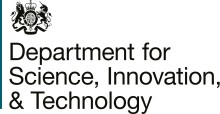
NL-COMM
Start date
March 2024End date
March 2025Overview
Project description
Some of the major challenges in current wireless communications networks are related to their achievable spectral efficiency, connectivity capabilities, power efficiency and to costs related to their deployment and operation.
To increase the spectral efficiency and user connectivity, current networks heavily rely on Multi-User Multiple-Input, Multiple-Output (MU-MIMO), and massive-MIMO (mMIMO) technologies. However, the large number of required base-station antennas (with its related RF chains) can substantially increase the power consumption of the cell sites, resulting in bulkier and heavier base stations. In addition, existing, first-generation MU-MIMO deployments, typically employ linear processing approaches that are practical, but can leave many of the MIMO spectral-efficiency and connectivity gains unexploited, resulting in increased development and operational costs.
Aims and objectives
NL-COMM aims to be the first ever solution able to realise and integrate non-linear processing in practical wireless systems by solving long-standing theoretical (e.g., rate adaptation, and MIMO user scheduling) and practical (e.g., processing complexity and processing latency) problems, while exhibiting measurable gains of high importance to wireless networks.
As such, NL-COMM will drive advancements that have the potential to transform the way we perform physical layer processing and it will lay the groundwork for future networks that can further benefit from the gains of non-linear processing, thereby strengthening the UK’s capability and share of the global telecoms market. In addition, NL-COMM will be the first approach integrating such solutions into the fast-growing Open RAN ecosystem, enabling new solutions and products.
First evaluations show that NL-COMM can enable significant gains in terms of:
- Spectral Efficiency
- Reduced Processing Complexity and Processing Latency
- Connectivity
- Energy Efficiency
- User Density
Media Assets
Demonstration of the 5G/6GIC Massively Parallelizable Non-Linear Framework for MU-MIMO
Funding
This project has been funded by the Department for Science, Innovation and Technology (DSIT) and Innovate UK (UKRI-Innovate UK), as part of the Small Business Research Initiative (SBRI) Competition.



Team
NL-COMM is led by Dr Konstantinos Nikitopoulos (Project Lead), an Associate Professor (Reader) of wireless communication systems with strong expertise in non-linear processing. He is an active member of the 5G/6G Innovation Centre (5G/6GIC) where he leads the “Theory and Practice of Advanced Concepts in Wireless Communications” research area, and the Open RAN Lead for the University of Surrey.
His research focuses on the physical layer (PHY) aspects of pragmatic, energy and latency-efficient wireless communication systems that “work in practice” and, in particular, on the intersection of (i) advanced, highly efficient, physical layer (PHY) processing design, (ii) advanced computing architectures and (iii) system level design and demonstration. As an academic, he has led a plethora of research projects, with a big part of those being market-driven and industry supported.
He is the main inventor of the NL-COMM processing approaches and a recipient of the prestigious UK's Engineering and Physical Sciences Research Council “First Grant” in the same research area (i.e., MultiSphere).
The project will be delivered by the Wireless Systems Lab, that Dr Nikitopoulos directs.
Project lead

Professor Konstantinos Nikitopoulos
Professor in Wireless Communications & Signal Processing
Biography
I am currently a Professor, with the Institute for Communication Systems, University of Surrey, Guildford, UK, and the Director of its newly established “Wireless Systems Lab”. I am an active academic member of the 5G/6G Innovation Centre (5G/6GIC) where I lead the “Theory and Practice of Advanced Concepts in Wireless Communications” Work Area.
My work lies at the intersection of advanced signal processing, cutting-edge computing architectures, and system-level wireless design, including Open RAN systems. I have also extensive experience in "non-orthogonal" transmissions, including MIMO and NOMA transmissions and I am also the main inventor of the the award-winning NL-COMM technology that has been as one of the 33 O-RAN ALLIANCE solutions to be featured at the Mobile World Congress 2025 in Barcelona, and has been recommended by Innovate UK ICURe for commercialisation.
I also lead the Physical Layer Open RAN development at the University of Surrey, and I have been the the Consortium and Project Lead of the “HiPer-RAN: Highly Intelligent, Highly Performing RAN” project, supported by the UK’s Department for Science, Innovation and Technology (DSIT) as part of the Open Networks Ecosystem Competition.
As an academic, I have attracted as a Principal Investigator (PI) research grants of more than £11 million, with a big part of my research being market-driven and industry supported. As Project Lead I have received the “Incremental Innovation” Future Networks Award, presented by the Department for Science, Innovation and Technology and the UKTIN. This award recognizes projects that have delivered “significant advancements in network technologies through iterative, practical improvements”. I am also an IEEE Senior Member and a recipient of the prestigious First Grant of the UK's Engineering and Physical Sciences Research Council. I was named "2024 Innovator of the Year" by the University of Surrey’s School of Computer Science and Electronic Engineering.
In terms of teaching, I have been a recipient of the “Tony Jeans Inspirational Teaching Prize” of the University of Surrey, as well as a recipient of the "Teacher of the Year Award" for the School of Computer Science and Electronic Engineering.
I received my PhD from the National and Kapodistrian University of Athens and, since then, I have held research positions at the Institute for Communication Technologies and Embedded Systems at RWTH Aachen University, at the California Institute for Telecommunications and Information Technology at University of California at Irvine and at the Computer Science Department at University College London (UCL).
I have also been a consultant for the Hellenic General Secretariat for Research and Technology, where I also served as a National Delegate of Greece to the Joint Board on Communication Satellite Programmes of European Space Agency.
Outputs
Related publications
- K. Nikitopoulos, G. N. Katsaros, M. Filo, C. Jayawardena and R. Tafazolli, "Toward Software-Based, MIMO, Open-RAN PHY Architectures with Both Linear and Non-Linear Processing," IEEE Communications.Magazine., vol. 62, pp. 133-139, Aug. 2024
- G. N. Katsaros, K. Nikitopoulos, “Massively Parallelizable, Non-Linear MIMO Processing for Energy Efficient, Ultra Dense Open-RAN Vehicular Networks”, IEEE Access.
- K. Nikitopoulos, M. Filo, G. N. Katsaros, C. Jayawardena, and R. Tafazolli, “MU-MIMO, Open-RAN PHY with Linear and Massively Parallelizable Non-Linear Processing,” in Proceedings of the 29th Annual International Conference on Mobile Computing and Networking, ACM MobiCom ’23, (New York, NY, USA), Association for Computing Machinery, 2023.
- K. Nikitopoulos, “Massively-parallel, non-linear processing for 6G: Potential gains and further research challenges,” in IEEE Commun. Mag., Jan. 2022.
- C. Jayawardena and K. Nikitopoulos, “G-MultiSphere: Generalizing massively parallel detection for non-orthogonal signal transmissions,” IEEE Trans. Commun., vol. 68, no. 2, pp. 1227–1239, Feb. 2020.
- K. Nikitopoulos, G. Georgis, C. Jayawardena, D. Chatzipanagiotis, and R. Tafazolli, “Massively parallel tree search for high-dimensional sphere decoders,” IEEE Trans. Parallel Distrib. Syst., vol. 30, no. 10, pp. 2309–2325, Oct. 2019.
- K. Nikitopoulos and R. Tafazolli, “Parallel processing of sphere decoders and other vector finding approaches using tree search,” Patent No. WO2016198845A1
- J.C. De Luna Ducoing and K. Nikitopoulos, “Scalable MU-MIMO User Scheduling for Next-Generation Wireless Networks,” in Proc. IEEE CAMAD 2023.
Contact
To find out more please contact k.nikitopoulos@surrey.ac.uk.
